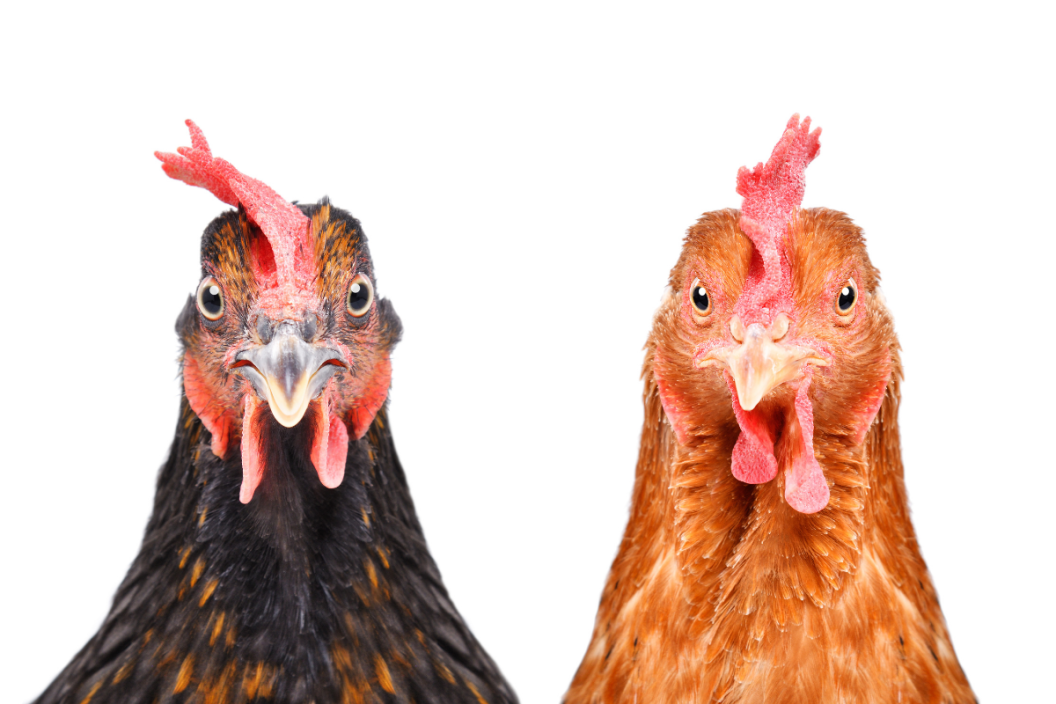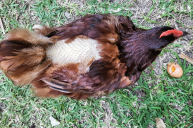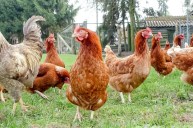A Chicken's Lifespan Depends on Several Factors
Chickens (or as my two-year-old niece calls them, "bok bok") are undeniably one of the cutest farm animals out there. Their beautiful, fluffy feathers, their funny expressions, their egg laying abilities, and their human-like qualities (like the fact that they can recognize more than 100 faces!) are just some of the things that make chickens such a popular pet for many American households. But if your pet chicken is a new addition to your backyard, you might be asking, "how long do chickens live?"
Well, we have good news! Backyard chickens that've been taken good care of have a life expectancy of eight to ten years while the average chicken has a lifespan of about five to ten years, give or take. Read on for four main factors that'll influence the lifespans of your backyard chickens.
1. Diseases
Don't panic, most diseases your backyard flock can get are not lethal and can cause only minor health issues, like parasites and lice. That said, these minor health issues can attack the immune system and still reduce the lifespan of a chicken. To prevent common health issues and prolong your pet chicken's lifespan, clean and dust your chicken coop regularly and feed your backyard flock a nutritious diet.
2. Nutrition
Just like humans, a healthy diet can impact the lifespan of your backyard flock. We've come a long way from the days where chicken owners would just throw whatever table scraps they have to the roost, to now, where retailers like Amazon have specific feeds for each stage in the chicken coop - from baby chicks to older hens. But be aware of over-feeding: overweight chickens are more likely to develop health issues like heart and respiratory problems - leading to a shorter lifespan. Avoid having too much protein in their diet too, as that can cause kidney problems.
3. Housing and Environment
Another factor that'll impact the life expectancy of your backyard chickens is their housing and environment, i.e. their chicken coop and its surroundings. Fortunately nowadays with pet chickens, the problem of predation (stay away raccoons!) is highly unlikely as backyard flocks are usually kept in well-built chicken coops and roosts. However, the conditions your chickens are kept in still contribute to their overall lifespan, and the roost should be kept clean, dry, and warm in the winter (and vice-versa in the summer), provided along with ample food and water. Also, some fresh air would be nice!
4. Breed
It is indeed a harsh reality, but how intelligent the breed of chicken is does contribute to the lifespan of a chicken: there are simply just breeds of chickens that are smarter than others and thus more vigilant to their surroundings, like free-range chickens. It also depends if your pet chicken is a hybrid or heritage breed: while heritage breeds are chickens that've been bred and raised naturally, hybrids are selectively bred for precise reasons - and some hybrid chickens only have a life expectancy of around seven weeks. Heritage breeds, on the other hand, can live naturally and have an average chicken's lifespan.
Who's in the Chicken Coop?
Some of the most popular breeds of chickens are: Rhode Island Reds, a classic heritage breed that is raised to lay eggs and provide meat, can have a lifespan of eight years or more; Wyandottes, a heritage breed that's also raised for egg laying, can live about six-plus years; Orpington, a favorite heritage breed because of its mellowness and its overall laid-back, docile nature. This breed has a life expectancy of eight-plus years. Another popular choice for a backyard chicken is the Bantam, these oh-so-adorable chickens are a mini version of a regular chicken, and has a life expectancy of ten years. Last but not least is the Golden Comet, these hybrid chickens are solely bred for egg production. Their lifespan is only a few years - with five years being considered an old age. However, when it comes to raising chickens for high production, the Golden Comet is one of the best breeds to lay eggs.
Whether you have laying hens for egg production or pet chickens, your backyard flock will have a happy and long life devoid of health issues, and a longer than average lifespan, if these factors are considered.
Do you have a pet chicken or baby chicks? Are they used for egg laying purposes or something else? Please let us know in the comments below!






